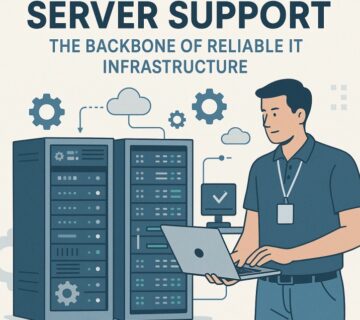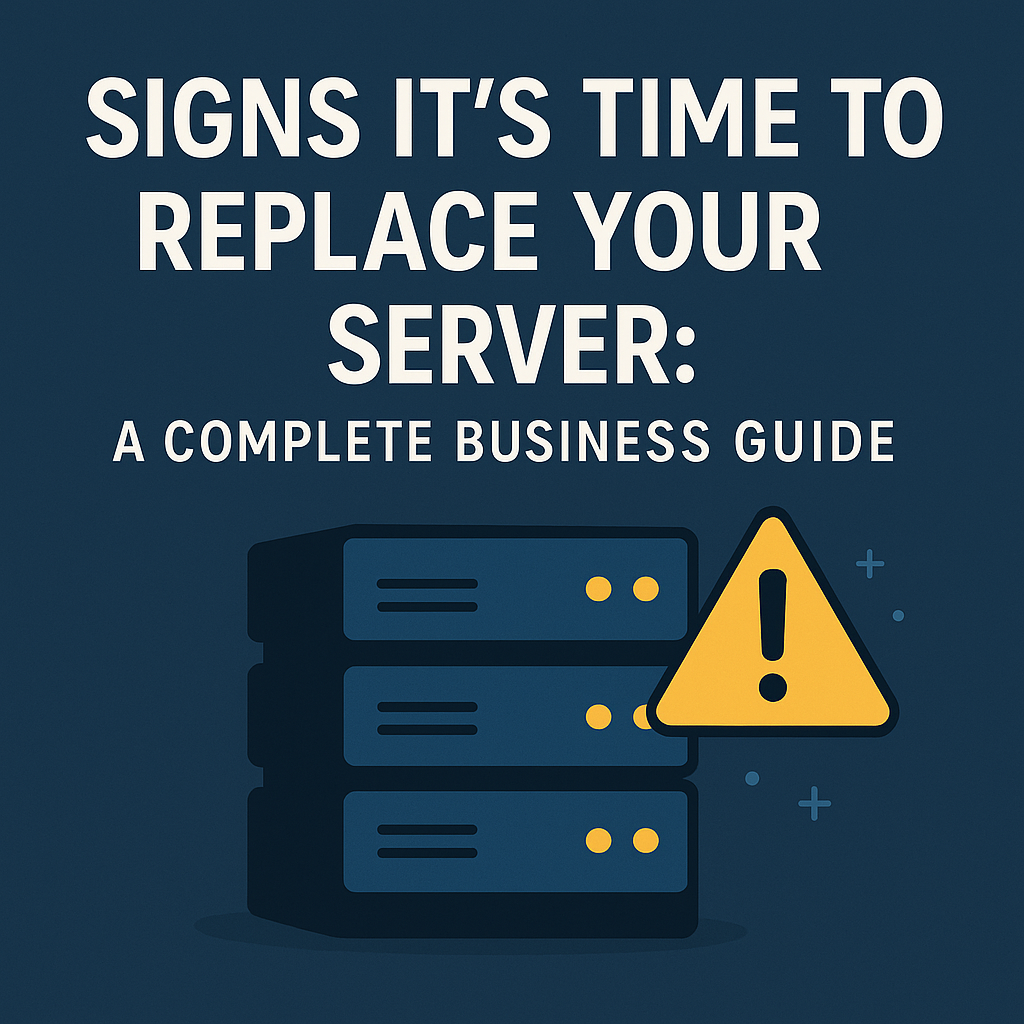Why Server Backups Are Crucial for Disaster Recovery

Disaster recovery planning has become a cornerstone of effective business continuity strategies, especially in today’s data-driven world. Companies rely heavily on their servers to store, manage, and secure critical data. But what happens when an unforeseen disaster—be it natural, technical, or human-induced—occurs? This is where the importance of server backups comes into play. Having a robust backup strategy ensures that data loss, downtime, and financial repercussions are minimized.
Whether you’re managing a VoIP support system, business VoIP systems, or other critical operations like business telephone providers, server backups help maintain uninterrupted services. These measures are especially critical for companies leveraging VoIP provider business solutions or any business services VoIP models to keep communications running smoothly.
Understanding Disaster Recovery: The Role of Server Backups
Let’s delve into why server backups are crucial for disaster recovery, how they work, and the best practices for implementing them effectively.
Disaster recovery is a strategic approach to ensure that an organization can recover and resume critical operations following a disruption. At the heart of any disaster recovery plan lies the principle of redundancy, with server backups being the most vital component. A server backup involves creating a duplicate copy of your data and storing it either on-site, off-site, or in the cloud.
For businesses offering IT support VoIP services or managing VoIP systems for small business, backups are particularly important because these services are often the backbone of communication and operational efficiency. Having backups ensures continuity in case of hardware failure or cyberattacks, safeguarding these essential communication systems.
By maintaining these backups, organizations are better equipped to restore operations, avoid permanent data loss, and reduce downtime. Server backups act as the safety net that businesses need to bounce back from even the most unexpected scenarios.
The Risks of Not Having Server Backups
Failing to have server backups can leave your organization vulnerable to numerous risks:
- Data Loss: Accidental deletions, hardware failures, or cyberattacks can lead to irreversible data loss, affecting not only your internal operations but also critical services like business VoIP systems and other business services VoIP.
- Extended Downtime: Without backups, recovery can take days or even weeks, disrupting IT support VoIP operations or other communication services provided by business telephone providers.
- Security Breaches: Hackers often target servers to disrupt operations or steal data. A backup allows you to recover safely and quickly, preserving services like VoIP provider business solutions.
- Reputation Damage: Prolonged disruptions and data loss can erode customer trust and harm your brand, particularly for VoIP service providers or any business relying heavily on business VoIP systems.
Key Reasons Why Server Backups Are Crucial for Disaster Recovery
Ensuring Business Continuity
One of the primary goals of disaster recovery is to minimize downtime. Server backups allow businesses to restore operations quickly, ensuring continuity. For organizations providing VoIP systems for small business, backups enable seamless communication during crises, ensuring that businesses relying on these services don’t face operational paralysis.
Safeguarding Against Ransomware Attacks
Ransomware attacks are increasingly common and can lock you out of your own systems unless a ransom is paid. With regular backups, even businesses like VoIP service providers or business telephone providers can avoid succumbing to these demands by restoring their server to a pre-attack state.
Minimizing Financial Loss
Data loss and downtime can lead to massive financial losses, including lost revenue, regulatory fines, and increased operational costs. For businesses relying on business VoIP systems, such interruptions can be financially devastating. Backups mitigate these risks by ensuring rapid data restoration.
Compliance with Regulations
Many industries, such as healthcare and finance, are subject to strict data protection regulations. Having regular server backups ensures compliance with laws like GDPR, HIPAA, and others, particularly for IT support VoIP and related services handling sensitive data.
Recovery from Natural Disasters
Floods, fires, and earthquakes can physically destroy servers. Off-site or cloud backups act as an essential safeguard in these situations, ensuring data remains accessible even if on-premises systems are compromised. For VoIP provider business solutions, this is especially important to maintain reliable communication during emergencies.
Types of Server Backups
Full Backups
A full backup is a comprehensive copy of all data stored on the server. Although time-consuming, it provides the most complete recovery option for any business, including those managing business VoIP systems.
Incremental Backups
Incremental backups only save changes made since the last backup. They’re faster and consume less storage, but restoration can take longer since multiple backups need to be pieced together. This approach is commonly used for VoIP systems for small business due to its efficiency.
Differential Backups
Differential backups store data that has changed since the last full backup. They strike a balance between speed and comprehensiveness, making them suitable for organizations like business telephone providers that need quick access to communication records.
Cloud Backups
Cloud-based backups store data on remote servers, offering accessibility, scalability, and enhanced protection against physical disasters. For VoIP service providers, cloud backups ensure that critical communication data is always retrievable.
Best Practices for Implementing Server Backups
Establish a Backup Schedule
Frequent backups are key to minimizing data loss. For example, VoIP support teams might schedule daily or hourly backups to ensure customer communication records remain intact.
Test Your Backups Regularly
Creating backups is only half the battle. Testing them ensures that they can be successfully restored when needed, which is essential for business services VoIP providers and other customer-facing industries.
Follow the 3-2-1 Backup Rule
The 3-2-1 rule recommends having three copies of your data, stored on two different media, with one copy off-site. This ensures redundancy and accessibility, even for VoIP systems small business operators.
Encrypt Your Backups
Data encryption protects your backups from unauthorized access, adding an extra layer of security against breaches that could disrupt business VoIP systems.
Invest in Reliable Backup Software
Choose software that suits your business needs, supports automation, and integrates with your existing infrastructure. This is particularly crucial for IT support VoIP services, which depend on efficient data management.
How Server Backups Contribute to Data Security
By implementing regular backups, organizations can strengthen their overall data security posture. For business VoIP systems, backups ensure that even if data is deleted or corrupted, an intact version remains available. Furthermore, they help meet auditing requirements and protect against unauthorized changes.
Server Backups for Small and Medium-Sized Businesses
Small and medium-sized businesses (SMBs) are often more vulnerable to data loss due to limited resources. Implementing affordable cloud-based solutions can help SMBs safeguard their operations without the need for extensive on-site infrastructure. This is especially true for SMBs leveraging VoIP systems small business solutions to maintain their communication networks.
FAQs
What is a server backup?
A server backup is a process of creating a duplicate copy of data stored on a server. It ensures that data can be restored in case of loss or corruption, protecting critical systems like business VoIP systems or VoIP service providers.
How often should I back up my servers?
The frequency depends on your business needs. Critical data, such as IT support VoIP logs, may require daily or even hourly backups, while less critical data can be backed up weekly.
Are cloud backups secure?
Yes, cloud backups are secure, especially when providers use encryption and advanced security protocols to protect data for business services VoIP or other enterprises.
What’s the difference between incremental and differential backups?
Incremental backups save only the changes since the last backup, while differential backups save all changes since the last full backup. Both methods are effective for VoIP systems small business solutions.
Can I automate server backups?
Absolutely! Modern backup solutions often include automation features to schedule backups and reduce manual effort for VoIP provider business operations.
What is the 3-2-1 backup rule?
The 3-2-1 rule involves keeping three copies of your data, storing them on two different types of media, and keeping one copy off-site. It’s an essential practice for ensuring redundancy in business telephone providers or any industry.




No comment